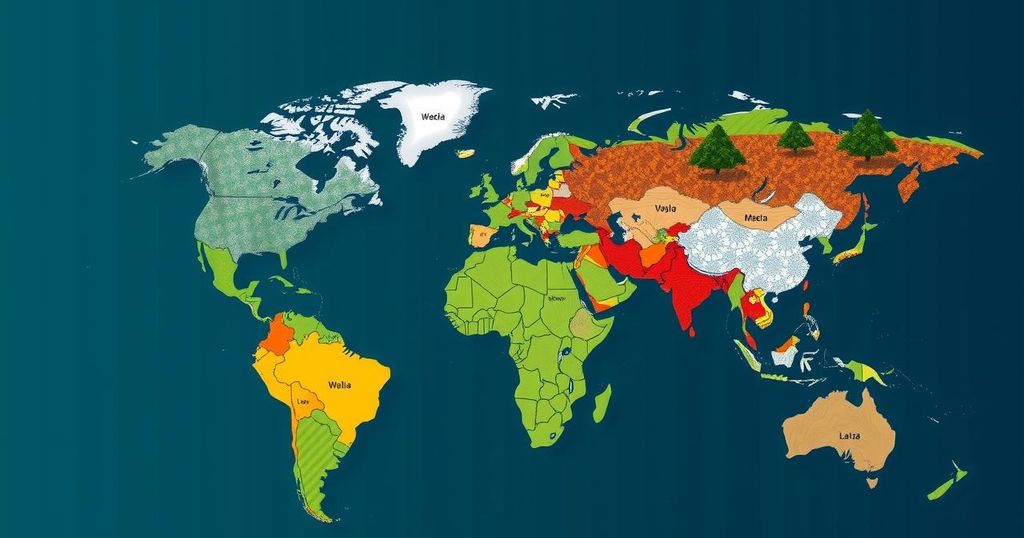Climate Change Compensation Initiatives: Wealthy Nations Aid Developing Countries

Richer countries are beginning to compensate poorer nations for climate-induced damages, exemplified by payments received by families like Christopher Bingala’s in Malawi after Cyclone Freddy. A fund of $720 million has been pledged by wealthier nations, though experts warn this may not suffice amid escalating climate impacts. Ongoing negotiations aim to clarify how to distribute these funds equitably to developing nations.
In the wake of severe climate disasters, richer nations are commencing financial compensations for damages incurred by poorer countries. Cyclone Freddy, the longest tropical cyclone recorded, devastated southern Malawi in 2023, resulting in widespread destruction and significantly affecting families like that of Christopher Bingala, who received approximately $750 in aid. This funding, part of a new “loss and damage” compensation initiative, aims to assist nations disproportionately burdened by climate change despite having minor contributions to global emissions.
The 2022 climate agreement established a fund, pledging around $720 million from various wealthy nations, though experts caution that this amount may not suffice given the escalating frequency and severity of climate-induced natural disasters. During the COP29 climate summit in Azerbaijan, ongoing discussions focus on determining fair compensation amounts owed to affected developing nations as part of broader climate finance efforts.
In an illustrative case, Christopher Bingala lost his home and livestock to the cyclone but managed to relocate and rebuild with the help of compensatory funding, highlighting a crucial pathway for recovery for vulnerable populations who often lack any safety nets. Approximately 2,700 families in Malawi have benefited from a pilot program executed by GiveDirectly, a nonprofit organization that provides unconditional cash grants, allowing individuals to rebuild their livelihoods.
The significance of these payments lies in their potential to create a robust system for compensating loss and damage associated with climate change. Phillip Davis, Prime Minister of the Bahamas, highlighted the moral obligation of wealthier nations to assist those impacted by climate crises, underscoring that low-income households generally possess limited protections against extreme weather events.
As the urgency to address funding for loss and damage escalates, it is anticipated that these humanitarian efforts will extend beyond disaster recovery, encompassing broader initiatives such as the relocation of communities threatened by climate change. With forecasts predicting annual losses of $250 billion by 2030, the onus remains on affluent nations to contribute responsibly to mitigate these challenges.
The compensation initiative for loss and damage stems from a recognition that low-income countries are disproportionately affected by climate change consequences, despite their minimal contributions to greenhouse gas emissions. In 2022, a decision was made during international climate negotiations to establish a dedicated fund to support developing nations facing climate-induced damages. This fund is considered essential given the increasing intensity of climate-related disasters, which are projected to worsen in the coming years.
In conclusion, the initiative to financially compensate poorer nations for climate-related damages marks a significant step towards addressing the inequalities exacerbated by climate change. While the pledges made thus far appear substantial, the growing severity of disasters necessitates greater contributions and a more comprehensive funding strategy to ensure that vulnerable populations can recover and adapt.
Original Source: www.keranews.org






